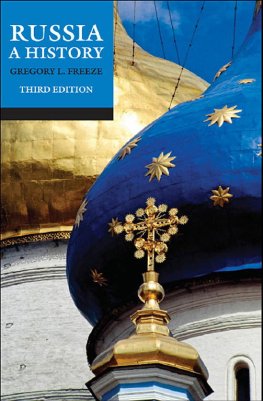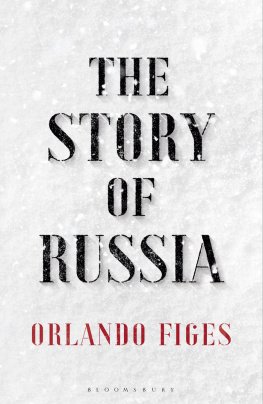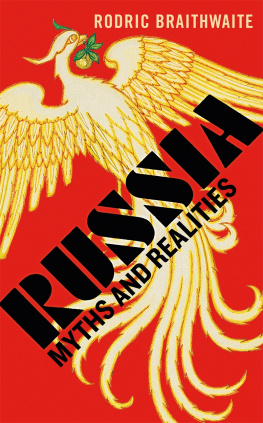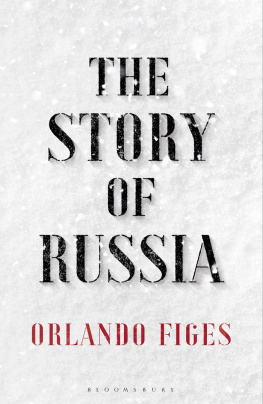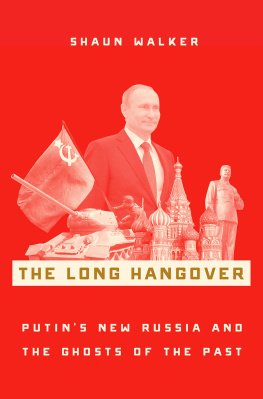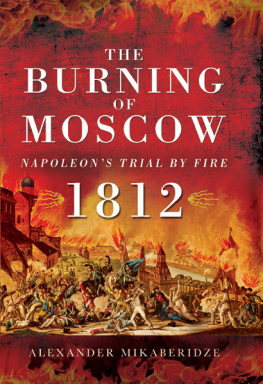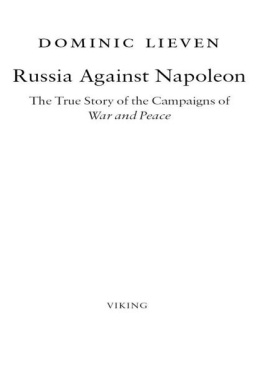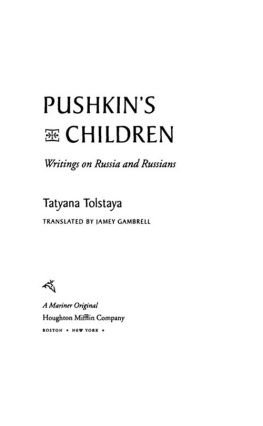Bully. Bear. Insatiable aggressor. To many the words are inseparable from Russia itself. Wherever one looks support can be found for such epithets. The annexation of Crimea and military intervention in eastern Ukraine; the earlier flash war with Georgia and flattening of Chechen dreams for independence; the inward turn to authoritarianism and open assault on civil libertiesall push Russia onto the stage of international villainy.
The images, to be sure, enjoy little favor at home. There the titles one hears come as if from a parallel world where all is turned on its head. Allusions to Russia the defender, the protector, and even the savior or liberator permeate state media, academic tomes, religious manifestos, and popular histories. In spite of how far apart the two worldviews are, sustenance for these alter egos can be drawn from the same events and actions. The distance between the two is as unbridgeable as the values that define them. They share, perhaps, only one feature. Neither is new.
Russia has long borne this Janus-faced reputation, no matter what flag it has flown or ideology it has embraced. Its image as villain stretches back virtually unbroken for centuries. Other nations have at times taken the limelight, but none in the modern age has been such a consistent member of the cast, as if history permanently and purposefully assigned Russia that role. Such longevity, however, also marks its double, presenting us with the paradox of reading the same history, just upside down. Is Russia a global power whose expansionist designs have made it, in the words of a Czech historian from the nineteenth century, an infinite and inexpressible evil? Or is it a force for good, defeating titans such as Hitler and delivering the world from its darkest enemies?
War is where Russias contested legacy has been forged. For a millennium its lands, along with those of Belarus and Ukraine, have been among the worlds great battlefields. The scope, savagery, and frequency of conflicts that have ravaged this region are almost unprecedented. The largest armies, the biggest battles, the worst losses of lifeall of these superlatives would rightfully, and tragically, point there. In the twentieth century, the celebrated philosopher Nikolai Berdyaev concluded that the history of the Russian people is one of the most poignantly painful of histories. Sometimes that pain has been self-inflicted: Berdyaev himself was expelled from Russia following the Bolshevik Revolution, whose aftermath took the lives of millions. Yet he also wrote these words just when World War II had devastated that area of the world like no other conflict in all of human history.
As a consequence, war saturates Russian culture. Many of its churches have been built to honor its military heritagesome directly on battlefields with icons of warrior-saints adorning the walls while they continue service as the countrys heavenly guardians. Noted operas and ballets are devoted to war, while its dominance in cinema and television is unparalleled. The saturation runs so deep that Russias most famous writers, many of whom wore a uniform, cannot avoid the subject, whether in novel, verse, story, or essay.
Yet war has had its deepest impact on how Russia sees itself in the world. Here the quantitative factor of saturation leads to a qualitative one, arming it with the impression that its experience of war is unique. Other nations fight, die, attack, and defend, but no other, runs this belief, has faced such a persistent wave of challenges and threats for century upon century. This perceived distinction is so great that it serves as the foundation for a Russian myth of exceptionalism.
As anyone familiar with Russia knows, iterations of a special destiny have long colored its political landscape. Yet the one that derives from war is, in and of itself, exceptional because it alone bridges the ideological turns Russia has taken in modern times, from the arch-conservatism of the Russian Empire in the nineteenth century to the revolutionary radicalism of the Soviet Union in the twentieth. And today, in the Russian Federation, it serves as the core of a neo-nationalist civic religion seeking to unite all citizens around a shared belief about their unique role in history and place in the world.
Not all who over time have embraced this legacy have done it for the same purposes or in precisely the same manner. However, when it is invoked, it issues from a common stock of assumptions, operates with a consistent vocabulary, and mobilizes along an interlocking emotional appeal. At its center lies a mythic view of Russias history based on archetypal sets of causality, character types, scenarios, and outcomes around which remembrance of that past is structured. As this pattern repeats across genres and generations, it can downplay the profound differences that make each and every conflict sui generis and leave in their place perceived or imagined commonalities. In so doing, Russias wars are pushed into a single frame of reference that, as held in collective memory, fosters a distinct national identity both born and bred in war.
The story that Russian myth produces is obviously a favorable one, and it shares key features with a generic good war paradigm: right versus wrong, just cause, noble sacrifice. At the same time, however, because of Russias geographical location, its thousand-year legacy of conflict, and the unshakeable influence of Orthodox Christianity, it can take striking positions and make unsettling claims that, as it often appears to outsiders, veer off into irrational and even disconcerting directions.


